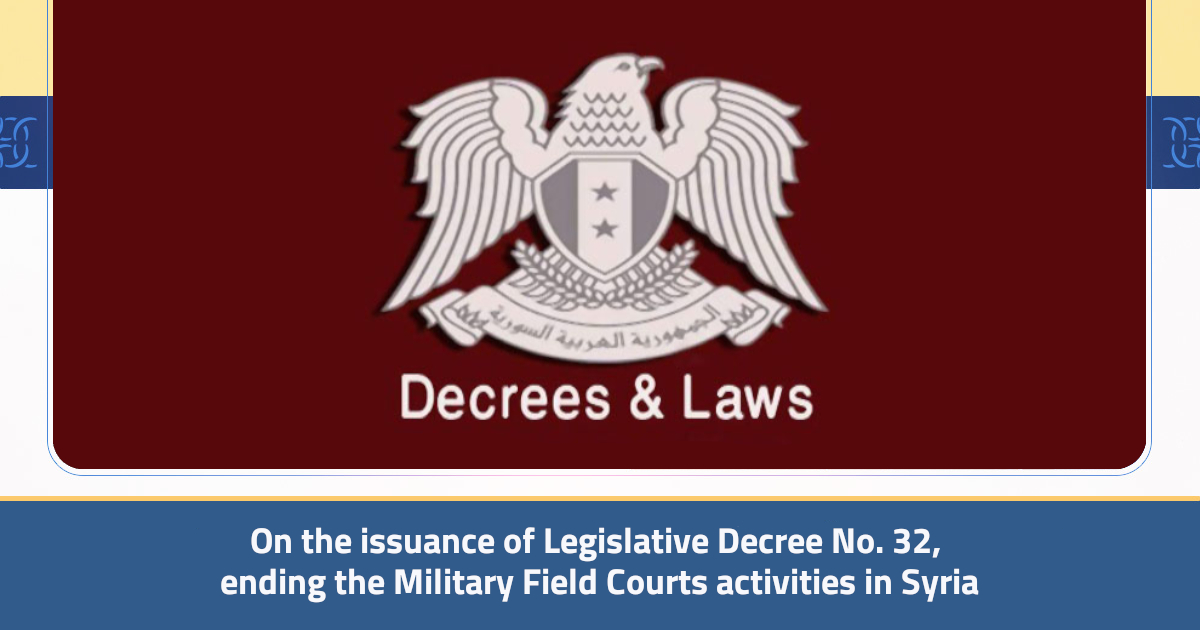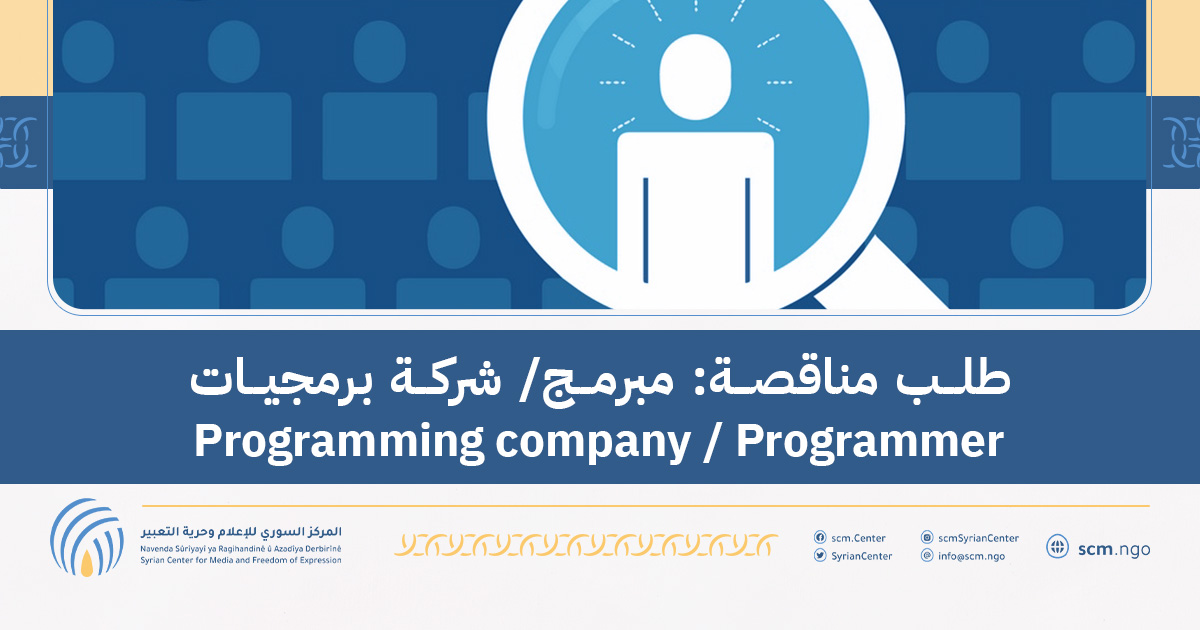On Sunday, September 3, 2023, Decree No. 32 was issued, terminating Decree No. 109 for 1968 and its amendments, which pertained to the establishment of military field courts in Syria.
Despite the symbolic nature of this decision and its supposed role in rectifying a reality that goes against the Syrian constitution and international human rights law, military field courts lacked any constitutional or legal legitimacy. They failed to meet any of the requirements for fair trials, especially since they became one of the key tools for legalizing executions and seeking revenge against opponents of the Syrian government. This is evident in the statements made by former Defense Minister, Mustafa Tlass to the German magazine Der Spiegel in February 2005, in which he revealed that he signed nearly 150 execution orders per week on behalf of the Commander-in-Chief of the Army and Armed Forces against opponents from all affiliations.
With the onset of the popular uprising in 2011, military field courts were solidified as instruments of killing and torture, resulting in the deaths of thousands of civilians according to the Violations Documentation Center (VDC). Despite the theoretical importance of abolishing the military field courts, there are significant doubts about its impact on the state of human rights and freedoms in Syria and the respect for the fundamental principles of fair trial. Syria has witnessed theoretical legal reforms such as lifting the state of emergency and passing legislation on peaceful demonstrations and political parties; however, these reforms had no practical impact on the country.
There are concerns that the decree abolishing the court might serve as a pretext for impunity in Syria through the destruction of the court’s archives, and the loss of crucial evidence about verdicts, numbers of convicts, and their fate. The decree did not provide information in regards to the transfer of previous cases to the military court, nor did it include any reference to the fate of the court records.
Due to the lack of trust in judicial independence in Syria and its complete subordination to the executive branch, the referral of pending cases before military field courts in their present state guarantees neither the right to a fair trial nor compliance with its minimum requirements. Moreover, it deprives a significant number of those with pending cases before the court of one stage of litigation. Article 4 of Legislative Decree No. 109 of August 17, 1968, states that:
B – The public prosecution at the court enjoys all the powers and authorities granted to the Public Prosecutor and the military investigating judges.
C – The decisions of the Public Prosecutor are final and not subject to any appeals, depriving citizens referred to it of their defense rights and avenues for appealing the Prosecutor General’s decisions.
This gives the public prosecutor great power in which his decisions are final, in which the defendants that were referred to it have no right to appeal the decision. The position of the public prosecutor also fills the positions of the investigating judge stipulated in Article 23 et seq. of the Military Procedure Code, which is in clear contradiction of the Code of Military Procedure.
Referring all pending cases before military field courts to military court also violates the rights of a large portion of those with pending cases to a fair trial. According to Decree No. 109 of 1968, these courts are only permitted to try civilians in specific cases specified by law and can only commence their work after a decree declares that the country is in a state of war. Decree No. 32 of 1980 did not change this provision, which adds to the text of paragraph b of Article II “in cases of internal disturbances” to military field courts’ jurisdiction, according to Decree No. 109 mentioned earlier.
Therefore, the Syrian Center for Media and Freedom of Expression (SCM) stresses the following:
- The need to disclose the court records since its establishment for public access and to enable Syrians to exercise their right to know the truth and find out the fate of their loved ones.
- Referring all pending cases before military field courts to criminal and military courts based on jurisdiction and competence.
- Disregarding the decisions of the Public Prosecution of the military field court as they violate legal principles and referring cases to military and criminal investigating judges for review with the immediate release of all individuals who were arbitrarily detained.
- Stressing the criminal responsibility of the field court judges, the Commander-in-Chief of the Army and Armed Forces, and the Defense Ministers, with no possibility of any form of immunity for their decisions constituting crimes. It is also necessary to subject the field court’s work and judges to mechanisms of transitional justice in Syria.




